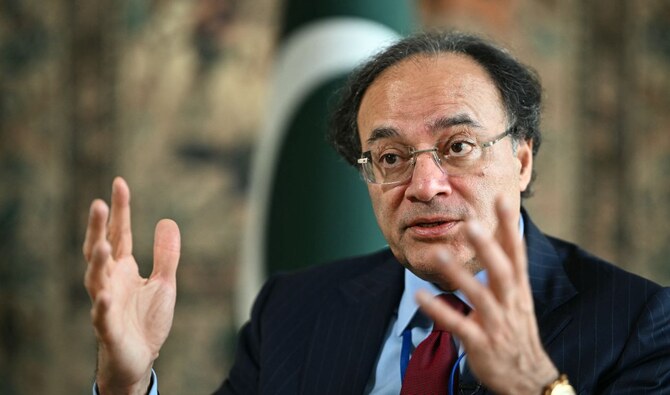ISLAMABAD: Federal Minister for Finance and Revenue Muhammad Aurangzeb on Tuesday expressed optimism about the approval of Pakistan’s $7 billion International Monetary Fund (IMF) program, when the board of the global lending agency meets on Wednesday.
The government reached a staff-level agreement with the IMF in July, though the approval for the 37-month program has been pending since.
Pakistan’s last $3 billion IMF program helped avert a sovereign default in 2023 amid a sharp decline in foreign exchange reserves, currency depreciation and record inflation.
“We have the IMF board meeting tomorrow in the US,” the minister said, while addressing a high-level private sector dialogue, ‘CPEC-II and the Region.’ “We are very hopeful that the board will approve the 37-month, $7 billion program under which we are very committed to do structural reforms.”
Assuring that the country would stay its current economic course, Aurangzeb pointed out that macroeconomic stability was the “basic foundation” of any economy.
“You have to grow and build from a stable base,” he added. “We have reached that level now. Now, we can say that we have a good foundation on which we can build from here.”
“Now we need to move forward and stay with the reform agenda whether it’s on the taxation or energy side [or] on the state-owned enterprises or privatization side.”
The finance minister said it was important that the KIBOR, or Karachi Interbank Offered Rate, used as a benchmark interest rate in Pakistan, was also coming down, which positively affects the industry. He added that the government was in “no desperation” to borrow money.
“If we want to borrow domestically, we will at our terms,” he said.
Aurangzeb said it was about time the banking sector started lending to the private sector.
Pakistan has struggled with boom-and-bust cycles for decades, leading to 22 IMF bailouts since 1958.
The latest economic crisis has been the most prolonged one, with the highest levels of inflation, pushing the country to the brink of a sovereign default last summer before the IMF loan.
The conditions of the IMF programs have become tougher in recent years, requiring the government to impose higher tariffs and remove subsidies. The latest bailout is aimed at cementing stability and inclusive growth in the crisis-plagued South Asian country, according to the IMF.
The latest IMF staff-level deal is subject to approval by its executive board and the confirmation of necessary financing assurances from Pakistan’s development and bilateral partners.


















